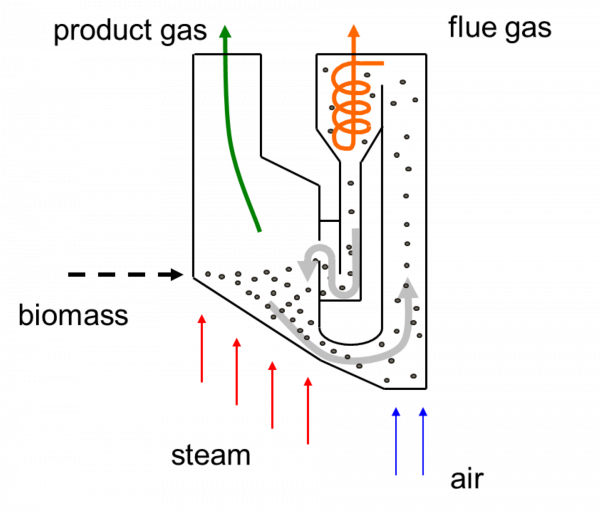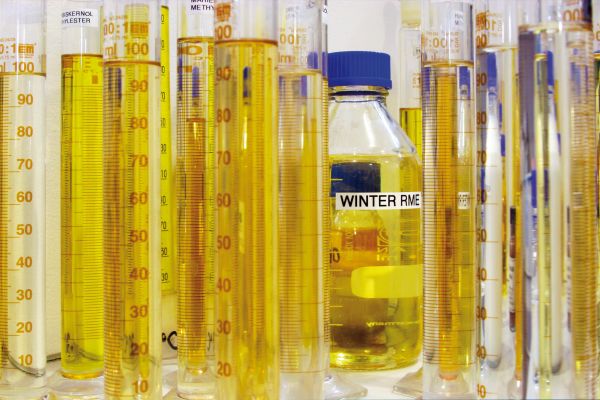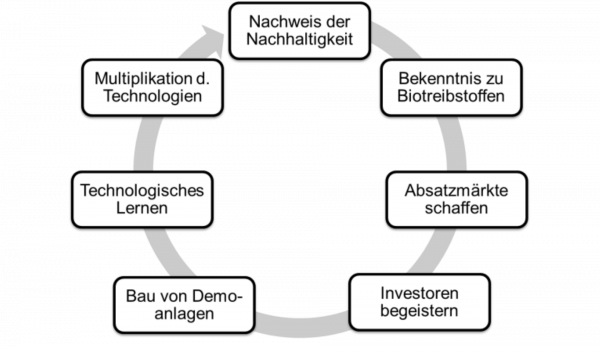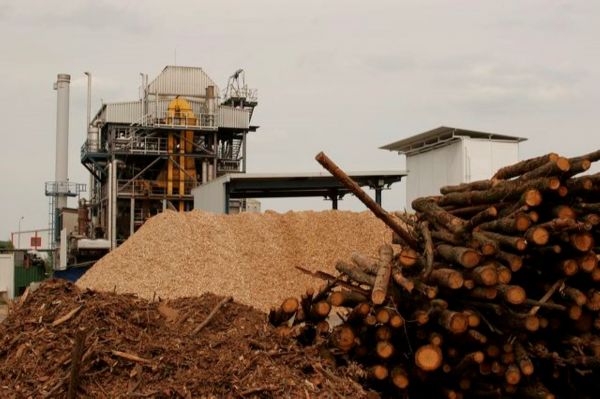IEA Bioenergy Task 39: Commercialization of Conventional and Advanced Liquid Biofuels from Biomass (Working Period 2016 - 2018)
Short Description
Biofuels play a key role in the development of the transport sector in Europe and the rest of the world. By 2020, EU countries will have to increase the amount of renewable energy in the transport sector to 10%, with strict sustainability requirements. The aims of the USA are at least as ambitious.
IEA Bioenergy Task 39 gathers an international group of experts who deal with the commercialization of sustainable biofuels, hereby covering both technological and political issues. Task 39 has successfully established itself over the past five periods.
The aim of Task 39 is to pass condensed information to the participants in order to promote the development and use of biofuels Over the last working period, eight reports and one database of IEA Bioenergy Task 39 have yielded the following results:
- A large variety of biofuels and electro fuels exists, and this variety will further increase.
- Drop-in biofuels are fully compatible with the existing fuel infrastructure. The production of fuels with biogenic shares via the co-processing of bio-oils in fossil refineries has big potential.
- The production of lignocellulosic ethanol is being demonstrated at large scale, but still encounters technical and economic challenges.
- In order to supply sufficient sustainably produced biomass to achieve a significant contribution to climate goals, changes have to be implemented along the value chain.
- Different LCA models for biofuels often deliver different results. The reason for this is founded in regional differences in the cultivation of the feedstock and in differing methods for the allocation of greenhouse gas emissions to products and co-products. If these factors are levelled out, the results concur.
- The recast of the EU Renewable Energy Directive mandates 14% of energy from renewable sources in the 2030 transport sector. There are specific targets for advanced biofuels (0,2% in 2022, 1% in 2025, 3,5% in 2030).
- National blending mandates are very appropriate to stimulate the production and use of biofuels.
- China has ambitious goals for the use of biofuels, but the measures so far seem insufficient to achieve these.
- If algae-based biofuels are produced in biorefineries with cascading use, higher-value algae-based products can deliver the profits needed to render such installations economic.
- As the shipping sector is limiting sulphur emissions and will in the future also limit greenhouse gas emissions, the shipping sector is a new potential market for biofuels.
The aim of the national work is to collect and analyse scientifically sound information about the global technological and political status of biofuels, to involve stakeholders in the development and to contribute thereby to the development of sustainable, socially and environmentally compatible biofuel systems. Austria is involved in a number of projects of the Task, updates a database of pilot and demonstration plants and collects and distributes information.
Furthermore, a national workshop "Biofuels" was held in September 2016 for the presentation of Austrian R&D-work.
Project Images
Terms of use: The pictures listed underneath the header “Project Pictures” originate from the projects in the frame of the programmes City of Tomorrow, Building of Tomorrow and the IEA Research Cooperation. They may be used credited for non-commercial purposes under the Creative Commons License Attribution-NonCommercial (CC BY-NC).
Publications
Publications are available on the website of IEA Bioenergy Task 39.
Participants
Australia, Austria, Brazil, Canada, Denmark, Germany, Japan, Netherlands, New Zealand, Norway, South Africa, South Korea, Sweden, USA and the European Commission
Contact Address
Austrian delegate and project leadership:
DI Dina Bacovsky
BIOENERGY 2020+
Gewerbepark Haag 3
A-3250 Wieselburg-Land
Tel.: +43 (7416) 52238 35
E-Mail: dina.bacovsky@bioenergy2020.eu




